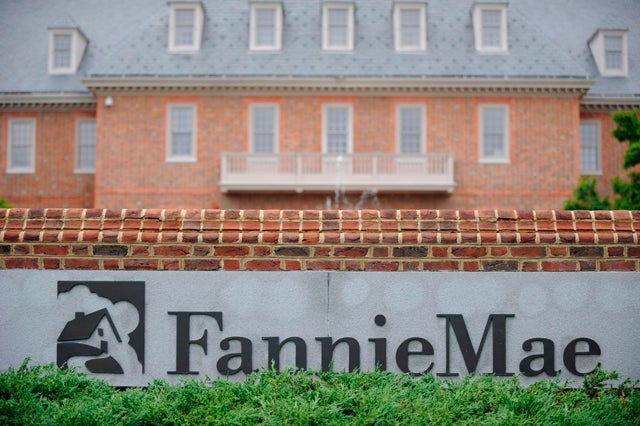Washington DC is abuzz now that Senators Tim Johnson (D–S.D.) and Mike Crapo (R–Idaho) have completed a bill to finally eliminate Fannie Mae and Freddie Mac. But Senator Chuck Schumer’s (D–N.Y.) statement is completely correct in that “if there was ever a bill where the devil was in the details, this is it.”
As Heritage has noted in the past, the Crapo-Johnson bill is based on the Corker-Warner bill, a proposal introduced in the Senate last June. The full details haven’t yet been released, but The Wall Street Journal is reporting that:
The plan, by Senate Banking Committee leaders Tim Johnson (D., S.D) and Mike Crapo (R., Idaho), calls for replacing Fannie and Freddie with a new system of federally insured mortgage securities in which private insurers would be required to take initial losses before any government guarantee would be triggered.
This scheme is exactly what’s in Corker-Warner: create a new government entity to explicitly back at least 90 percent of mortgage losses. So Fannie and Freddie will disappear, but the Federal Mortgage Insurance Corporation will take over their guarantees. And there won’t be an implicit government backing of losses; there’ll be an explicit promise to cover at least 90 percent of the losses. Only inside the beltway can this sort of reform be spun as a big win for taxpayers.
And the spin is almost dizzying. A recent Michael Milken op-ed praised the Senate approach, and noted that Corker-Warner largely follows a proposal by Phillip Swagel, a senior fellow at the Milken Institute’s Center for Financial Markets. But Milken leaves out that Swagel was an assistant secretary at the U.S. Treasury under Hank Paulson, an architect of the 2008 government bailouts. So it’s not very surprising that the Senate is keeping the market dominated by government guarantees.
Another group that has been quick to heap praise on the Crapo-Johnson approach is the Financial Services Roundtable. The Roundtable’s CEO, Tim Pawlenty, released the following statement in praise of Crapo-Johnson:
The government housing finance monopoly should end and the reform principles and agreement announced today are a positive step towards needed reform. We are pleased these principles and agreement reflect key reforms FSR has been advocating for, including a smooth transition to replacing the GSEs with the private market participants and better protection for taxpayers. The time for reform is long overdue…
Pawlenty is right. GSE reform is long overdue; private capital should finance the housing markets; and taxpayers do deserve better protection. And it is true that picking up 90 percent of the losses is a better outcome for taxpayers than picking up 100 percent of the losses, but history is on the side of free enterprise—not socialized housing. The whole point of a free-enterprise system is to allow both private gains and losses so that markets don’t end up with shortages and surpluses. Subsidization leads to things like inflated home prices, and inflated markets eventually crash, wreaking havoc on the way down.
House Financial Services Committee Chairman Jeb Hensarling (R–Texas), praised Crapo and Johnson for trying to change the status quo. Yet, Hensarling remains “skeptical of any approach that does not end the permanent government guarantee in the secondary mortgage market.” Hensarling is right to be skeptical of the Senate’s proposals, and so should taxpayers. They deserve much better.
